7 iconic hip hop fashion labels that changed the industry forever
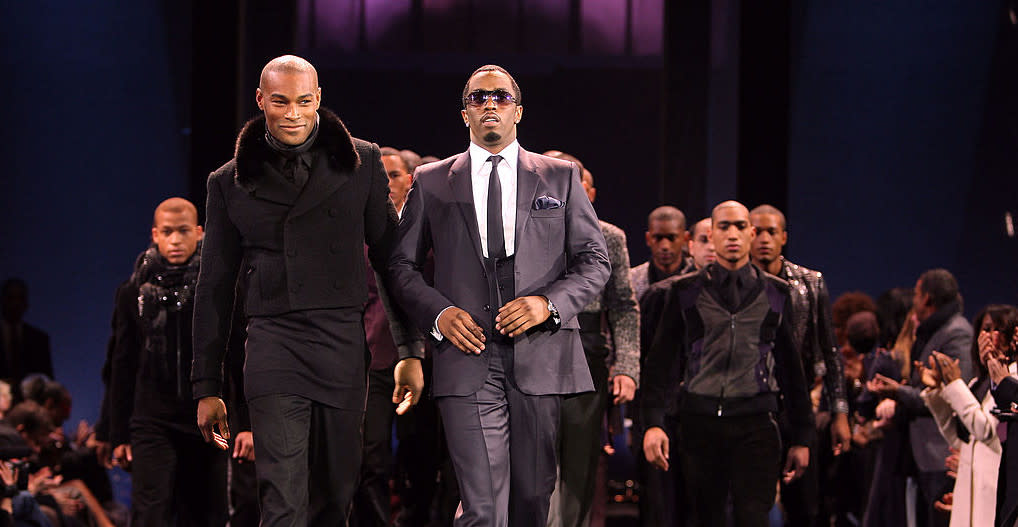
- Oops!Something went wrong.Please try again later.
Hip hop’s relationship with fashion has been studied for decades and has given rise to some of the most iconic labels that forever altered the way people dress. It’s impossible to discuss the cultural revolution without acknowledging the foundational brands that not only clothed a generation but also shaped its identity. Both products of the late 1990s, Rocawear and Sean John served as flag-bearers for the movement.
Other trailblazers such as FUBU and Phat Farm carved out their own niches by infusing style with potent messages of empowerment and inclusivity. They were instrumental in popularizing trends such as the flashy logos, leather jackets, embedded rhinestones, and the bold graphic tees that would define the wardrobe of generations to come. Below, check out our list of seven fashion brands that became symbols of a cultural takeover and badges of honor worn by those who lived and breathed hip hop.
1. Sean John
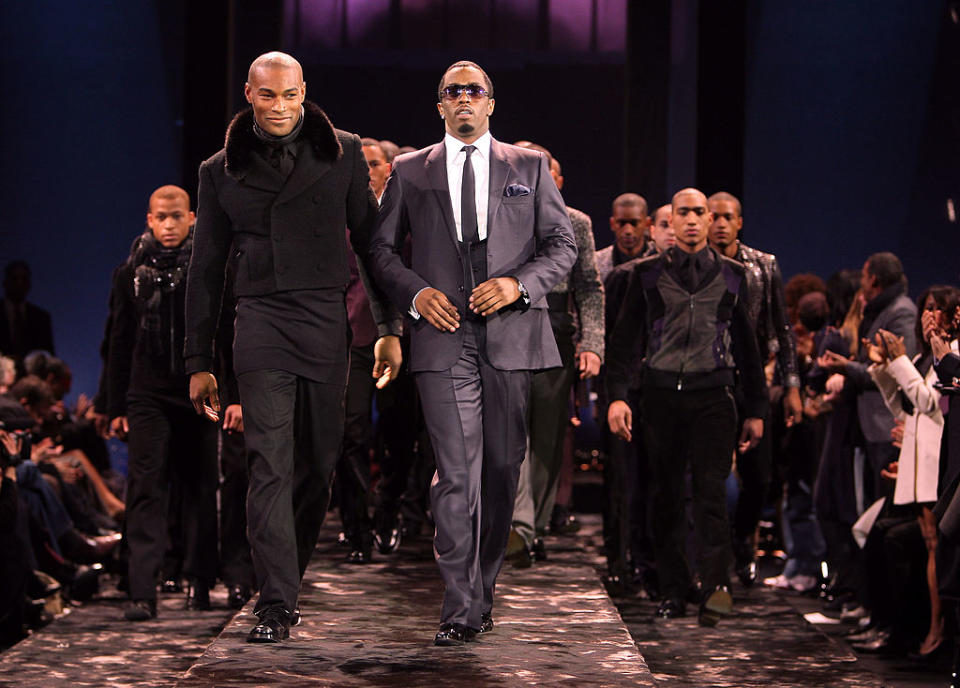
Established in 1998 by Sean “Diddy” Combs, Sean John translated the luxury of hip hop culture into fashion. One of the music magnate’s iconic empires, the brand rose to popularity thanks to its velour tracksuits, oversized shirts, baggy jeans, and even fragrances toward the end of the 2000s. Recognized with the CFDA Men’s Designer of the Year award in 2004, the label reportedly produced the first nationally televised runway show during NYFW.
Sean John’s prominence coincided with Combs’ own rise and linked the label’s identity closely with its founder’s public persona. In 2016, the New York native sold his majority stake in the company, later buying it back for over $7 million. Although a collection hasn’t dropped since then, the official website reads, “I got my name back.”
In a press statement, the mogul explained, “Seeing how streetwear has evolved to rewrite the rules of fashion and impact culture across categories, I’m ready to reclaim ownership of the brand, build a team of visionary designers and global partners to write the next chapter of Sean John’s legacy.”
2. Rocawear
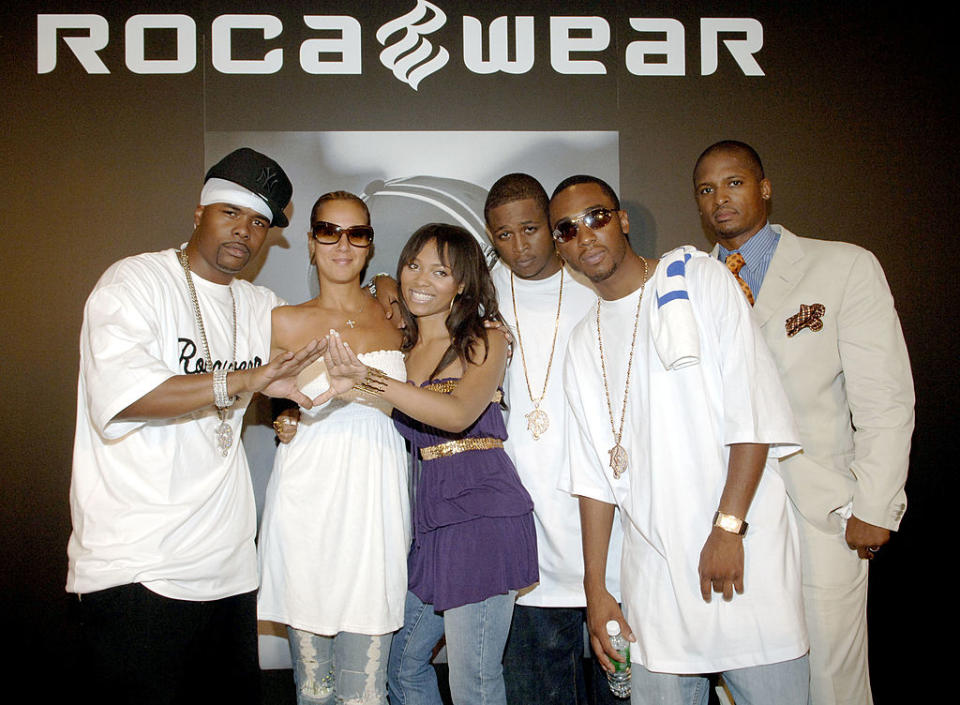
Started by JAY-Z alongside his Roc-A-Fella Records co-founder Dame Dash in 1999, Rocawear quickly became a staple in hip hop apparel. It embodied the urban aesthetic of New York City’s rap scene at the turn of the millennium and was worn by heavyweights such as Beanie Sigel, Memphis Bleek, Freeway, The Diplomats, and more.
Ranging from fitted caps to denim and other leather goods, the fashion label reportedly pulled in $700 million in annual sales at its height. Meanwhile, big names like Kanye West, Chris Brown, Ciara, Three 6 Mafia, Naomi Campbell, and Zoe Saldana help bolster the brand’s campaigns.
“Rocawear has always been part of the whole overall culture. It’s connected to everything that I do,” Hov told WWD in 2009. “So coming in full-time was important to me. It’s something I really believe in and something I want to protect.”
3. FUBU
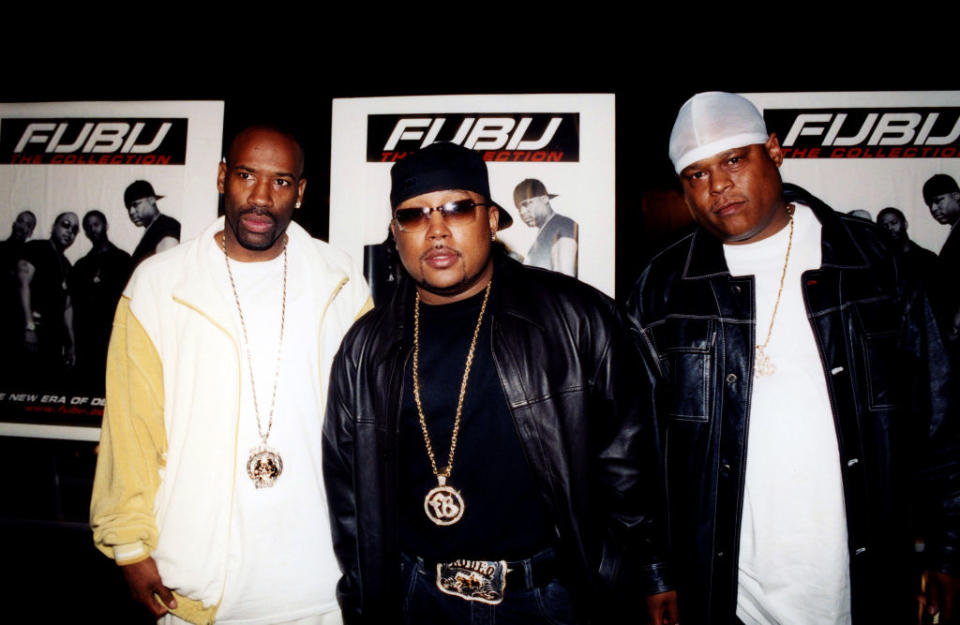
FUBU originated in Queens, New York from the ambition of Daymond John and his childhood friends J. Alexander Martin, Keith Perrin, and Carl Brown. The brand gained momentum in the ’90s hip hop boom, with significant exposure coming from an unexpected LL Cool J shoutout during a 1997 Gap commercial. Other highlights included Ol Dirty Bastard wearing the label in Mariah Carey’s “Fantasy” music video, alongside other celebrity endorsements from Busta Rhymes and Brand Nubian.
Interestingly, FUBU put out a compilation album titled The Good Life in 2001. It peaked at No. 52 on the Billboard 200 chart and contained guest appearances from Ludacris, Nate Dogg, Mr. Cheeks, India.Arie and Nas to name a few. However, the LP put the brand a whopping $5 million in the hole and contributed to its eventual decline in popularity.
“We were on such a grand scale in the ’90s and early 2000s that anything less than that, I guess, to our audience felt like we went away,” Brown shared with WSJ in 2021. “We became synonymous with the ’90s, and at that time, it was a help, but I think as time went on, styles changed.”
4. Phat Farm
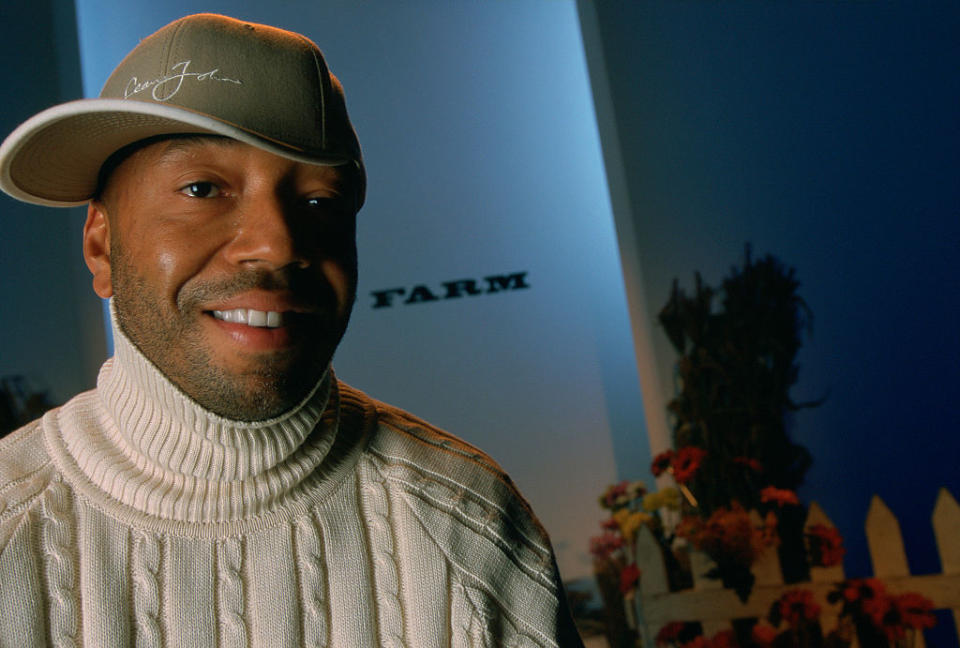
Phat Farm emerged in 1992 as Russell Simmons’ brainchild. Its genesis ran parallel to the entrepreneur’s music ventures, notably as the co-founder of Def Jam Records, which saw him infuse that same rhythmic pulse into the brand’s identity. His label mirrored the trend of other hip hop icons like Diddy and JAY-Z, and catalyzed a reciprocal relationship between high fashion and streetwear.
Russell’s vision extended beyond apparel. It helped to shape an era where artists morphed into style icons and fashion educators. Phat Farm’s success and influence in the ’90s and early ’00s was documented alongside Baby Phat, crafted by his then-wife Kimora Lee. Unlike its successor, though, the label hasn’t shown any signs of returning to back into the limelight.
5. Baby Phat
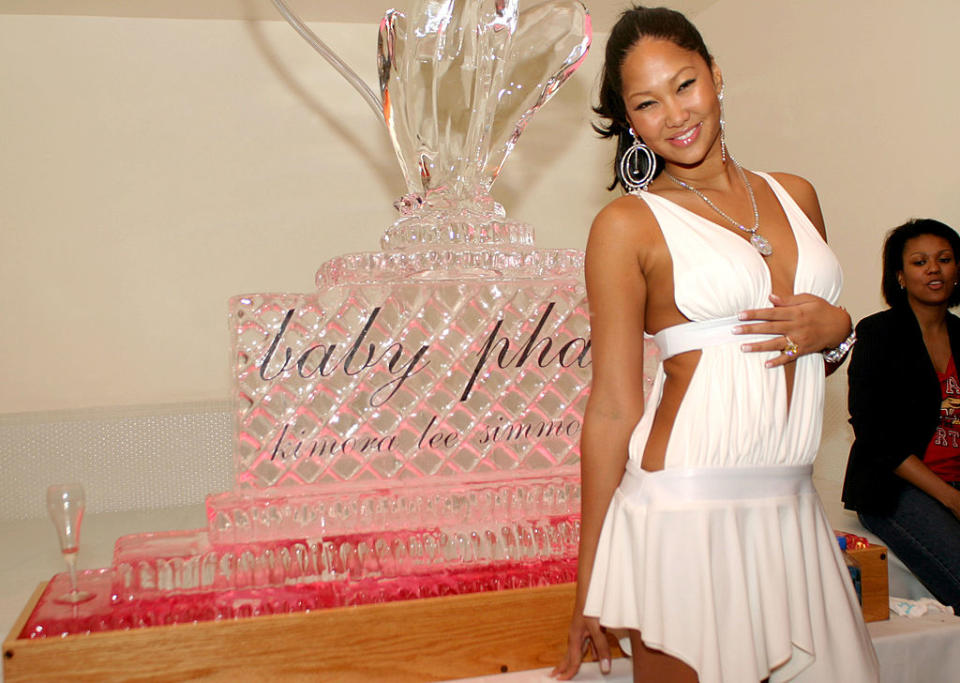
Founded by Kimora Lee Simmons, Baby Phat emerged in 2000 with a fusion of high fashion and streetwear. Its debut, an offshoot of Russell Simmons’ Phat Farm, captivated hip hop’s elite with front-row icons like Aaliyah and runway moments featuring Lil’ Kim. The “Magic Stick” rapper notably wore a rhinestone, logo-adorned bikini under faux fur at one of its fashion shows.
The brand’s reach extended beyond apparel to lifestyle, epitomized by the Baby Phat flip phone, tech’s fashion-forward moment during Mercedes Benz Fashion Week in 2002. That year also birthed the iconic photo of Cam’ron wearing a pink fur coat and talking on the cellular device. Even two decades later, the East Harlem native revealed that he refused to sell it after being offered $300,000.
6. Enyce
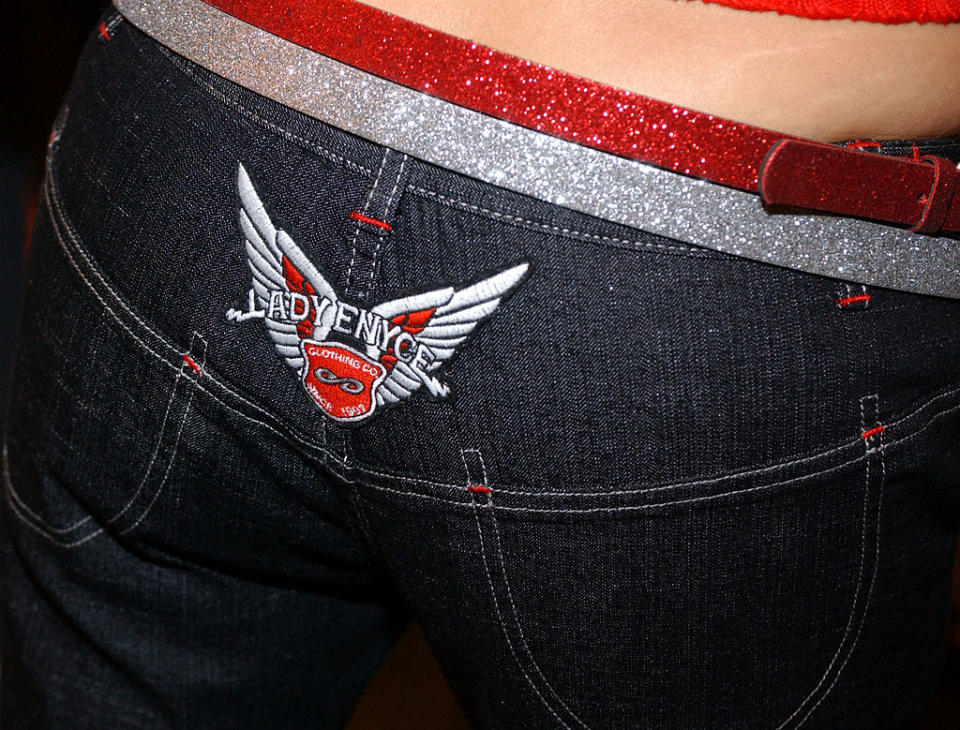
Enyce carved out its place in urban fashion shortly after its inception in 1996. Co-founded by Evan Davis, Lando Felix, and Tony Shellman, the brand resonated with hip hop’s streetwear culture by offering a mix of sporty and casual attire. Its lineup included a range of puffer jackets, tees, and denim. At its height, the label was acquired for $113 million by Liz Claiborne in 2004, later being sold to Combs in 2008 for only $20 million.
7. Karl Kani
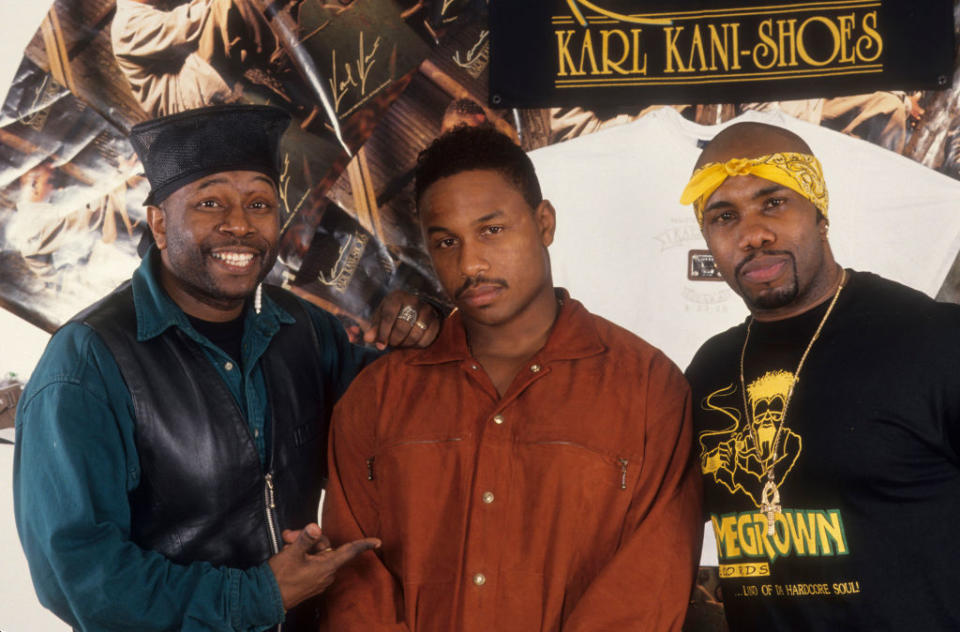
Founded by Carl Williams in Brooklyn in 1989, Karli Kani quickly rose to prominence as hip hop’s original streetwear brand. Its ascent paralleled with rap’s own triumphant rise, as the genre conquered global music charts. The label’s garments clad the likes of Aaliyah, Tupac Shakur, and The Notorious B.I.G., which cemented its influence in the culture.
Karl Kani’s authentic embrace by hip hop royalty propelled it to iconic status, with Williams becoming the first designer to develop a denim collection for the Black community. Partnerships with figures such as Snoop Dogg and Diddy, alongside honors including the Urban Fashion Awards’ Lifetime Achievement in 2002, underscore its foundational role in history. In recent times, the designer has been embraced by contemporary acts such as YG, Quavo, GloRilla, and Pop Smoke.
As Williams explained during his 2019 interview with The Face, “We gave the people what they wanted, which was kids who looked like them in the clothing ads, in the magazines and on the billboards. None of this was happening before. A lot of brands didn’t even want hip hop artists in their clothing. They felt like it would scare away their customers but we embraced hip hop and the culture, so we were connected from the street level up.”
Trending Stories

